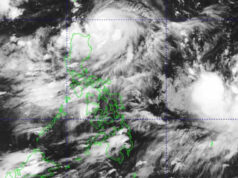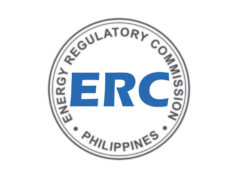DoF flags UHC funding shortfall due to lower ‘sin tax’ yields
By Beatrice M. Laforga
Reporter
FINANCE SECRETARY Carlos G. Dominguez III said funding for universal health care (UHC) set to roll out next year will likely fall short due to lower projected revenue on the newly-passed sin tax bill.
Mr. Dominguez added that the estimates are pointing to a funding gap, though actual financing needs may change once the program is implemented.
“Most likely, we will not quite hit the total amount that will be required, but again, we’re just talking about estimates now, we have to look at how it will actually work out,” he said in a news conference Thursday.
The reconciled version of the tax measure, which was passed Wednesday, is expected to yield P22.2 billion in revenue during the first year of implementation.
Of this total, 60% will be set aside for UHC, 20% will fund the Health Facilities Enhancement Program and the remaining 20% will be allotted for programs intended to help the Philippines hit its Sustainable Development Goals.
The projected revenue is lower than the P36 billion expected yield from the Department of Finance’s (DoF) initial proposal.
“At the moment, the UHC is one of our major programs to improve the productivity of our countrymen and at this point, we’re only dealing with estimates because we don’t have a universal health care program (yet), I suspect that sometime in the future we will have to revisit the estimates and compare it against actual,” Mr. Dominguez said.
UHC will require P257 billion worth of funding for its first year of implementation, sourcing the bulk from the general appropriations act and the remainder from revenue generated by Republic Act 11346, which imposes new taxes on tobacco and vaping products, as well as the newly-ratified tax measure.
However, UHC’s implementing agency, the Department of Health (DoH), has a proposed budget of P96 billion as approved by the Senate. The P4.1-trillion 2020 national budget is still being discussed at the bicameral conference committee level.
Nonetheless, Mr. Dominguez said the decision by the two chambers of Congress must be respected and that the department “appreciates the understanding and the actions the legislature has taken.”
“Maybe, who knows, Filipinos will actually get into the habit of eating better, smoking less, drinking less so that the total cost of the universal health care is going to go down. That is really very important… you have to take care of yourself first,” Mr. Dominguez told reporters.
Meanwhile, he said that the administration’s excise tax collections on alcohol and tobacco products have exceeded the previous government’s collections by 70%.
“I haven’t put in here the figures for the sweetened beverages but just the alcohol and cigarettes are already 70% more than what was achieved under the Aquino administration. Of that 70%, roughly 50% comes from increased rates of excise tax on alcohol, tobacco and e-cigarettes, plus around 20% more for better compliance by the manufacturers and that also comes hand in hand with stricter enforcement,” he said.
House Ways and Means Committee Chairman Jose Ma. Clemente S. Salceda said that the measure will be transmitted next week to the Palace for the President’s approval.
The DoF has been pushing the measure’s implementation by Jan. 1.
The measure is a part of the administration’s comprehensive tax reform program, along with other bills still pending in Congress, including the measure seeking to lower corporate income tax and rationalize tax perks.



